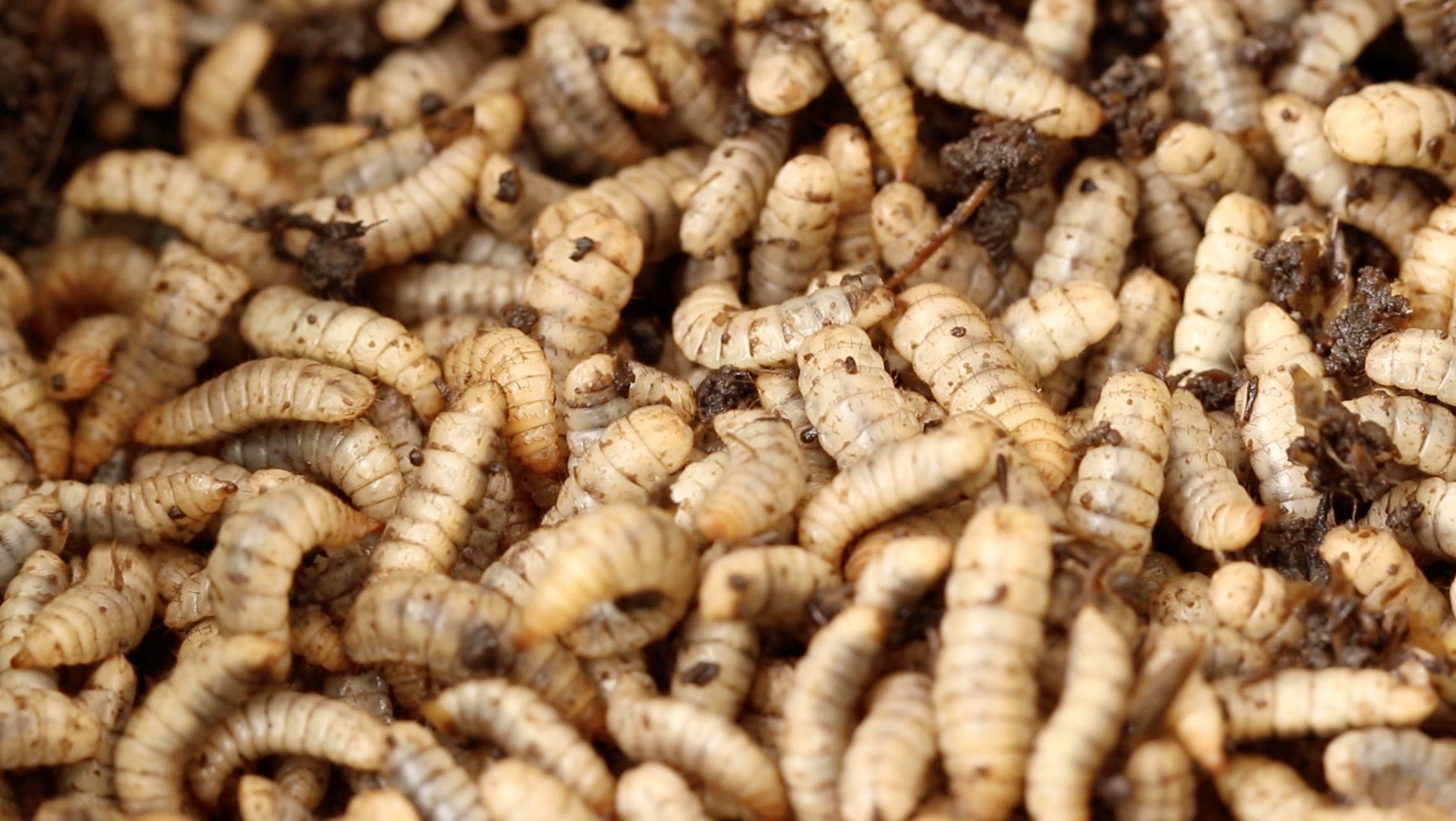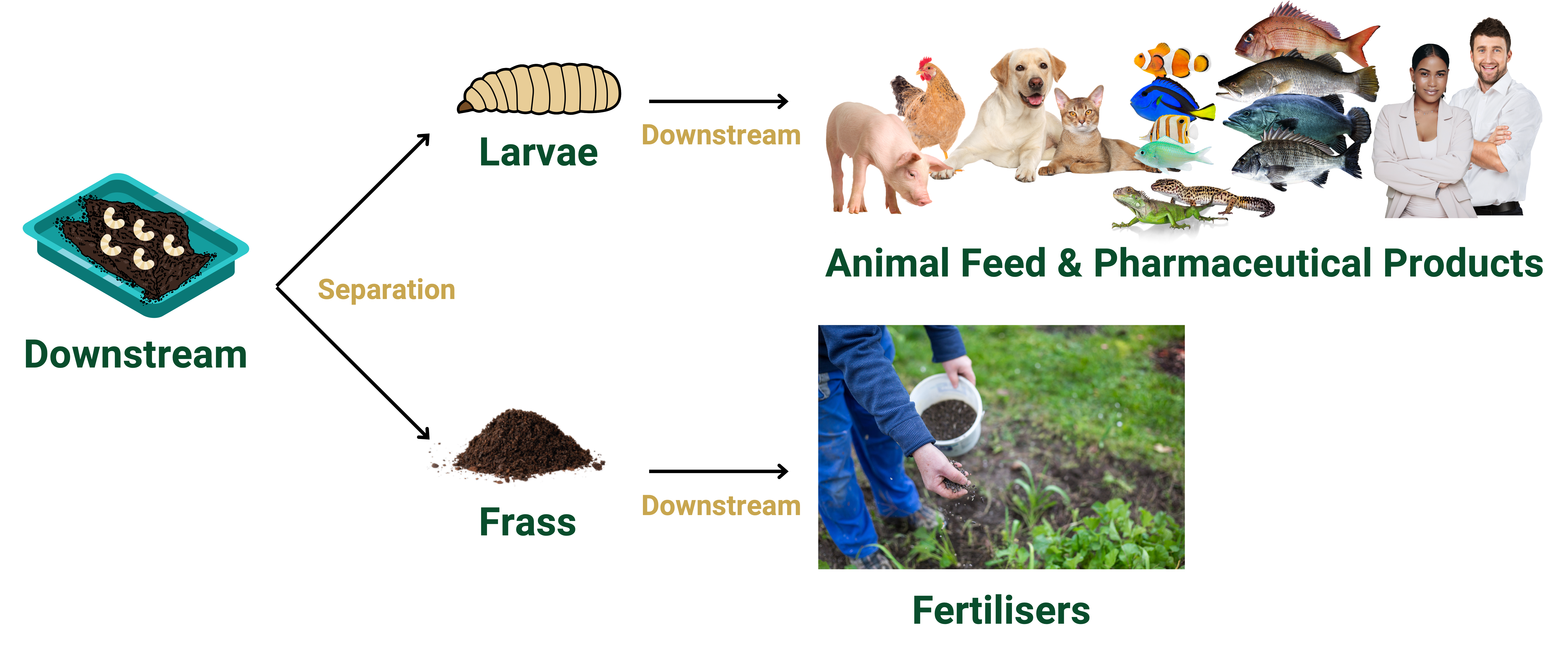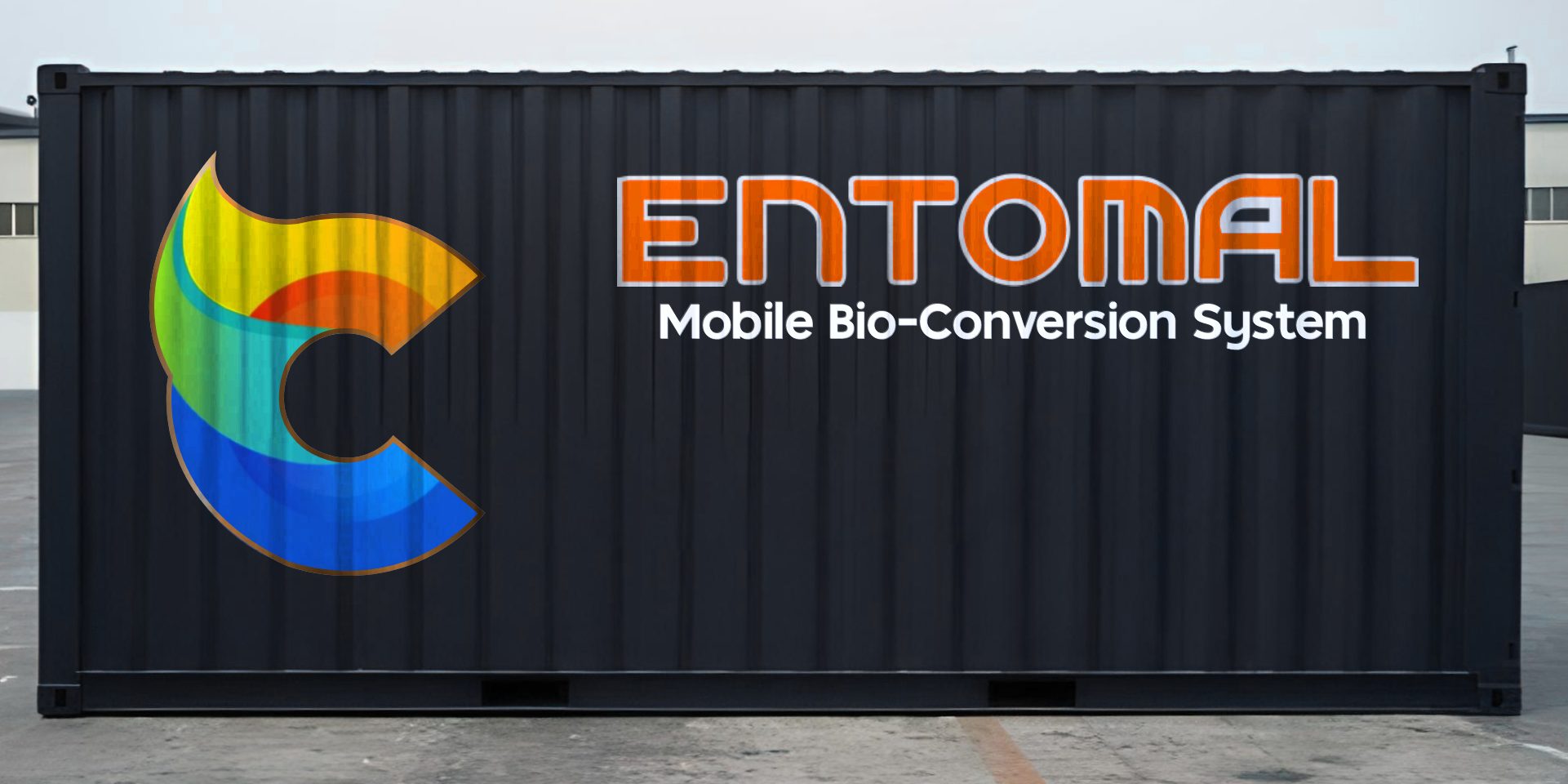Entomal is South East Asia’s leading black soldier fly (BSF) solution provider. We’re launching our innovative system for food waste management: the Entomal Mobile BioConversion System (EMBC).
Housed in a shipping container, the EMBC is a cutting-edge solution designed to tackle the food waste crisis in Kuala Lumpur. This decentralised system, strategically located across the city, will address both waste management and environmental concerns.
The EMBC will utilise the remarkable abilities of black soldier flies to convert food waste into valuable resources. By deploying this system, we will also raising awareness of responsible waste management practices. As each ton of waste in landfills generates 2.5 tons of carbon emissions, the EMBC’s impact will extend to mitigating carbon footprints and enhancing Kuala Lumpur’s sustainability goals.
Furthermore, the EMBC will help achieve circular economy and generate useful downstream products (insect protein and organic fertilisers). This will offer an excellent source of animal feed for pets and livestock farmers. Additionally, the organic fertilisers will enhance the city’s landscape aesthetics and support urban farming initiatives.
Through this challenge, Entomal aims to showcase the potential of the EMBC in transforming Kuala Lumpur into a greener, more sustainable city while empowering communities to take proactive steps towards efficient food waste management.



